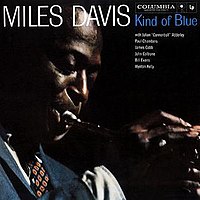Five years ago, I was rooting against Colorado State in the “Rocky Mountain Showdown”, the annual CU vs. CSU game that draws a crowd so large that they often hold the game at Mile High Stadium in Denver so that it can hold all 76,000 fans. I was in Fort Collins against my will, viewing it as a stupid hick town to which I would never return after my upcoming move to Arizona.
Three years ago, I started taking classes at the Peggy Paye Academy, a program designed to cater to “gifted” students. Almost from the start, pretty much everyone has college in their sights- PPA “nerdlings” (I think credit for that quite fitting phrase goes to Vicki, though I’m not positive) take classes or AP exams for college credit as early as their freshman year, start looking at colleges and majors soon after, and many graduate at age 16. For some, the worry is not over whether or not one gets into an Ivy League school, but over which Ivy they get into. Though it isn’t a problem for everyone, all of this collegiate preparation comes at the cost of actually enjoying and experiencing the high school years.
During my time at PPA, I spent countless hours engrossed in the college selection process. I enjoyed it. (And it gave me a semi-acceptable excuse to procrastinate my daily assignments.) I pictured myself becoming a master programmer at Carnegie Mellon, a drumming guru in New York City, a hippie intellectual at UC Santa Cruz, and a man of my own terms at Brown. I liked thinking about all of the places I could live, the things I could study, the different people I could become. In retrospect, I think I liked the idea of finally being in control of my destiny. It was an exciting feeling, but also a great burden: I had to be sure that I was making the right decisions for myself.
Eleven months ago, I graduated from McClintock High with PPA’s white cords on my robe. I had taken so many dual credit, AP, and community college classes that I had sophomore standing and most of my core classes waived. I was done with science, history, and English forever.
Eight months ago, I ignored all of those dreams and came back to the stupid hick town, to the university with the crappy football team.
And I couldn’t be happier.
You see, while I was making all of these grandiose preparations for my own future success, other stuff was going on. I started to observe situations that contradicted PPA’s self-driven world. I realized that the people I admired most were in fact doing things very differently. My best friend had pulled down a great apprenticeship as a machinist, and his college plans were secondary to those of becoming a firefighter. Another friend wanted nothing more than to touch others’ lives as a long-term missionary in Turkey. And my father, probably the most creative person I know, didn’t seem to lose his touch by dropping out of college. But probably deepest impact on my perspective came from these wise words:
Look at the birds of the air: they neither sow nor reap nor gather into barns, and yet your heavenly Father feeds them. Are you not of more value than they?
And which of you by being anxious can add a single hour to his span of life?
And why are you anxious about clothing? Consider the lilies of the field, how they grow: they neither toil nor spin,
yet I tell you, even Solomon in all his glory was not arrayed like one of these.
But if God so clothes the grass of the field, which today is alive and tomorrow is thrown into the oven, will he not much more clothe you, O you of little faith?
Therefore do not be anxious, saying, ‘What shall we eat?’ or ‘What shall we drink?’ or ‘What shall we wear?’
For the Gentiles seek after all these things, and your heavenly Father knows that you need them all.
But seek first the kingdom of God and his righteousness, and all these things will be added to you.
Therefore do not be anxious about tomorrow, for tomorrow will be anxious for itself. Sufficient for the day is its own trouble. (Matthew 6:26-34 ESV)
I think that somehow, despite my self-absorbed ego and thirst for wordly success, it was revealed to me (probably more like “drilled into my stubborn cranium”) that there isn’t as much to the one life I have to live as the world would like me to believe. Such a realization kills a lot of anxiety and self-doubt.
So now I’m going to the cheapest school I could find. I’m studying something of moderate interest to me, in hopes that it will prepare me for a career that can hopefully support a family and keep me from getting too bored. My other serious pursuits are music, which I enjoy most, and practicing self-sacrifice as a way of worshiping.
A lot of my good friends are graduating from high school this year. They’re all going in many different routes, and I wish them all the best. Like me, some went through a crazy college selection process. This Sunday’s New York Times had a great article titled, “Young, Gifted, and Not Getting Into Harvard”, which reminds me of many people I know who will do quite well, even if they aren’t going to the Ivy of their dreams.
So to my friends who are graduating this year and going off into the fray, I have these less-than-authoritative words:
Whatever you do, make sure you do what you love. Don’t get distracted, and don’t settle for less. Practice and perfect that which you love, and in the process, you will learn the discipline and responsibility that, in turn, will give you true success.













